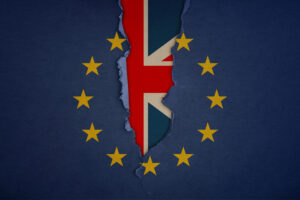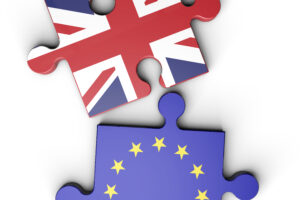As the Brexit transition period draws to a close, businesses will need to consider their data protection efforts to comply with both UK and EU regimes.
By Gail Crawford, Fiona Maclean, and Amy Smyth
 The end of the Brexit transition period on 31 December 2020 will have several data protection consequences. The impact of one of the more significant implications — the UK becoming a third country for the purposes of EU-to-UK personal data transfers — has been mitigated by a four to six-month grace period in the EU & UK Trade and Cooperation Agreement (the Trade Agreement).
The end of the Brexit transition period on 31 December 2020 will have several data protection consequences. The impact of one of the more significant implications — the UK becoming a third country for the purposes of EU-to-UK personal data transfers — has been mitigated by a four to six-month grace period in the EU & UK Trade and Cooperation Agreement (the Trade Agreement).
The Trade Agreement’s grace period states that personal data may be transferred from the EU to the UK as if the UK has not become a third country on 1 January 2021 (Article FINPROV.10A). This provision means that the requirement for a data transfer mechanism to legalise such transfers under the European General Data Protection Regulation (GDPR) will not be triggered on 1 January 2021, and these transfers may continue as during the Brexit transition period.
 On 29 January 2020, the EU Parliament approved the UK Withdrawal Agreement after the UK Parliament’s ratification via the EU Withdrawal Act 2020 on 23 January 2020 (Withdrawal Agreement). The Withdrawal Agreement maintains the UK pre-Brexit position and clarifies that the GDPR continues to apply in the UK during the transition period (between 1 February 2020 and 31 December 2020, or any extension agreed by UK and EU), allowing both sides to negotiate the future data protection relationship. The ICO confirmed that the GDPR will continue to apply, and that during the transition it will be “
On 29 January 2020, the EU Parliament approved the UK Withdrawal Agreement after the UK Parliament’s ratification via the EU Withdrawal Act 2020 on 23 January 2020 (Withdrawal Agreement). The Withdrawal Agreement maintains the UK pre-Brexit position and clarifies that the GDPR continues to apply in the UK during the transition period (between 1 February 2020 and 31 December 2020, or any extension agreed by UK and EU), allowing both sides to negotiate the future data protection relationship. The ICO confirmed that the GDPR will continue to apply, and that during the transition it will be “